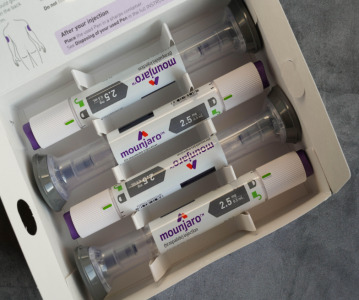European Commission Approves BMS’s Daklinza Across Multiple Genotypes for the Treatment of Chronic Hepatitis C Infection

Bristol-Myers Squibb (BMS) has announced that the European Commission has approved Daklinza (daclatasvir), a potent, pan-genotypic NS5A replication complex inhibitor (in vitro), for use in combination with other medicinal products across genotypes 1, 2, 3 and 4 for the treatment of chronic hepatitis C virus (HCV) infection in adults. Daklinza, when used in combination with sofosbuvir, is an all-oral, interferon-free regimen that provided cure rates of up to 100% in clinical trials, including patients with advanced liver disease, genotype 3 and those who have previously failed treatment with protease inhibitors. Daklinza is the first NS5A complex inhibitor approved in the European Union (EU) and will be available for use in combination with other medicinal products, providing a shorter treatment duration (12 or 24 weeks) compared to 48 weeks of treatment with interferon- and ribavirin-based regimens.
The approval allows for the marketing of Daklinza in all 28 Member States of the EU. The marketing authorisation for Daklinza follows an accelerated assessment by the Committee for Medicinal Products for Human Use (CHMP), a designation that is granted to new medicines of major public health interest.
“HCV is a challenging virus to overcome, requiring multiple modes of attack. With the approval of Daklinza, we have a new class of drug that disrupts the virus in two ways — by inhibiting both viral replication and assembly — and when combined with other compounds often results in cure among even the hardest-to-treat patients,” said Michael P. Manns, MD, Professor and Chairman, Department of Gastroenterology, Hepatology, and Endocrinology, Hannover Medical School, Hannover, Germany.
Of the estimated nine million people living with HCV in the EU, genotype 1 is the most common genotype, though distribution varies across the region. The burden of liver disease and other morbidities from HCV infection is significant in Europe, where HCV accounts for 63% of liver transplants among patients with virus-related liver disease. Patient populations with high unmet needs include those with advanced liver disease, protease inhibitor failure, genotype 3, HIV co-infected patients and those who have undergone liver transplant.
“The eradication of HCV is in sight, and with today’s approval, Daklinza, in combination with other agents, will be an important option to achieve cure across many HCV genotypes and patient types for those in the EU who are in dire need of new treatment choices,” said Emmanuel Blin, Head of Worldwide Commercialization, BMS. “We are proud to have discovered, developed and now brought to market this first-in-class NS5A replication complex inhibitor. We look forward to our continued work with EU health authorities to ensure Daklinza-based regimens are available to patients as quickly as possible.”
Related News
-
News The next 15 drugs up for negotiation with Medicare include several blockbusters
By now, everyone is quite familiar with the drug price negotiations taking place between drug companies and the Centres for Medicare & Medicaid Services (CMS) in the USA as part of measures being taken to reduce the cost of drugs for patients, to make ... -
News PSCI Welcomes Delpharm, Samsung Biologics, and Suven as First Supplier Partners
The pharmaceutical industry continues to evolve with an increasing focus on responsible sourcing, sustainability, and collaboration across the supply chain. Under a new model to recognise suppliers within the pharmaceutical and healthcare industry that... -
News Drug prices agreed upon as part of the US Inflation Reduction Act
The Inflation Reduction Act brought into constitution by the Biden administation in 2022, which proposed a drug price negotiation between the government and pharmaceutical companies, has reached it's first agreement. -
News Eisai Alzheimer’s drug authorised in UK but still faces obstacles
In partnership with BioArctic AB, pharmaceutical company Eisai has been granted Marketing Authorisation by the Medicines and Healthcare products Regulatory Agency (MHRA) for its Alzheimer’s disease drug product Leqembi. -
News Eli Lilly's weight loss drugs removed from the FDA's shortage list
The US FDA have recently updated their drug shortage list. The recently released list shows that all dosage forms of Eli Lilly's weight-loss drug Zepbound and their diabetes drug Mounjaro are now available. -
News Global advancements in the diagnosis and treatment of rare diseases: Rare Disease Day 2024
Rare Diseases Day is celebrated on the 29th February 2024 and represents the plight of rare disease patients to gain diagnosis and access to suitable treatment. -
News Pharmaceutical industry supports COP28 health stance in joint statement
As COP28 takes place over this week in Dubai, UAE, several bodies in the pharmaceutical and health industries have come together to announce support of key movements in sustainability in the sector, and to recognise sustainability as a health issue.&nb... -
News Biden backs Cold-War measures to shore-up medical supply chains
In a recent strategy to combat rising inflation and the cost of living crisis, President Joe Biden has invoked a Cold War-era act to increase investment in a selection of medicines and supplies.
Recently Visited
Position your company at the heart of the global Pharma industry with a CPHI Online membership
-
Your products and solutions visible to thousands of visitors within the largest Pharma marketplace
-
Generate high-quality, engaged leads for your business, all year round
-
Promote your business as the industry’s thought-leader by hosting your reports, brochures and videos within your profile
-
Your company’s profile boosted at all participating CPHI events
-
An easy-to-use platform with a detailed dashboard showing your leads and performance



.png)



